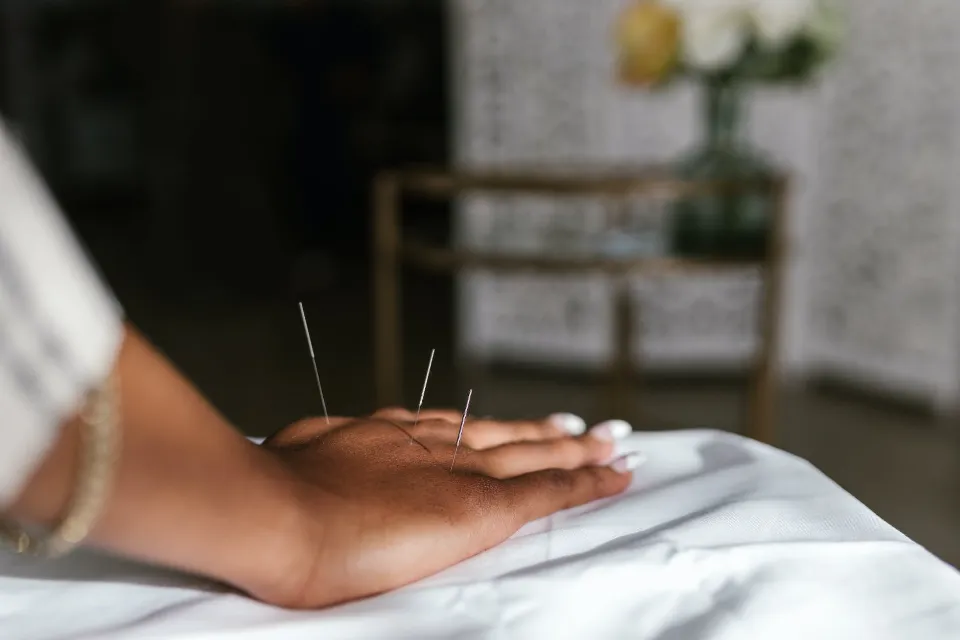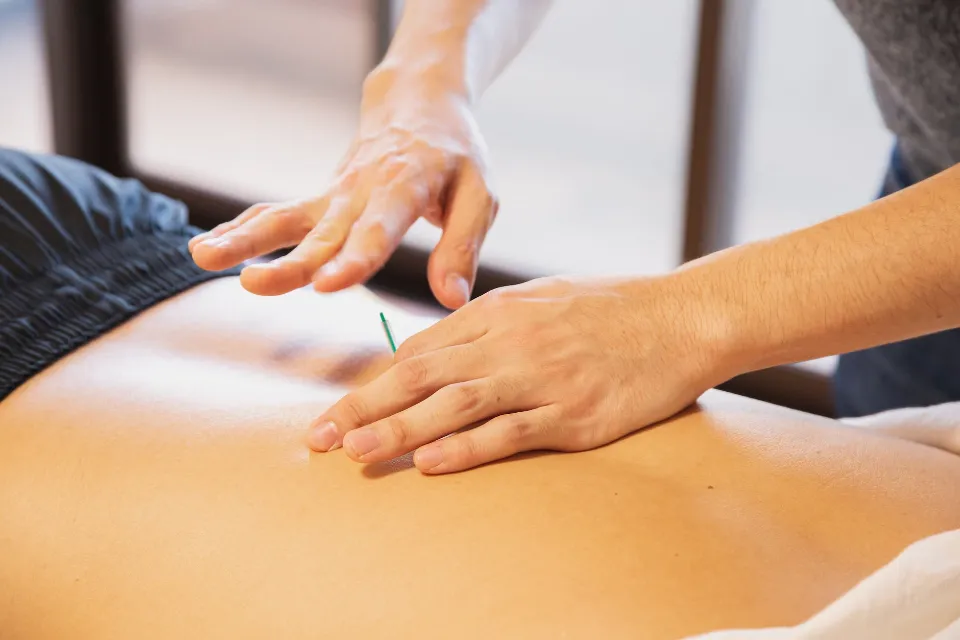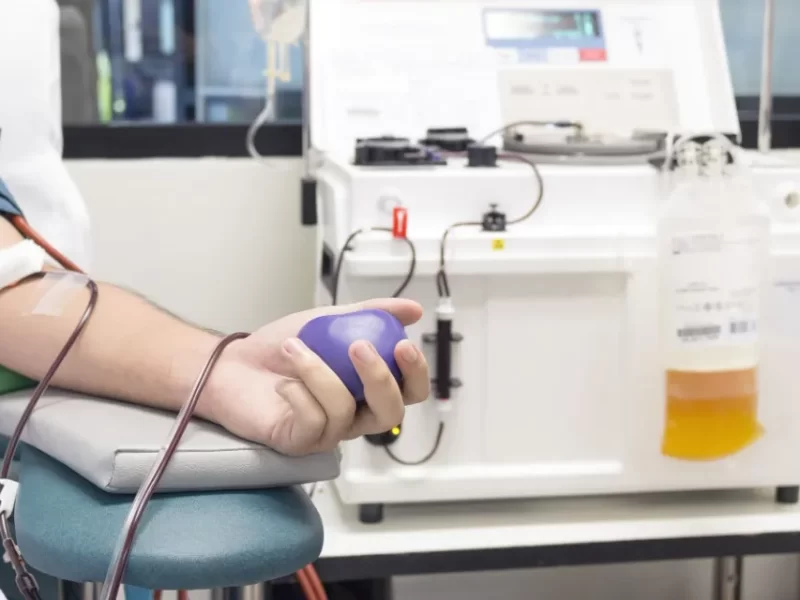Although every person is different, it is typically best to start with more frequent acupuncture treatments and then space them out as your body starts to respond and the effects start to last longer.
Acupuncture sessions are cumulative, so you should benefit greatly from each subsequent treatment. Until the condition is gone, I typically advise a patient to visit once to twice a week for four to six sessions, then once every two weeks, once a month, and so on. Depending on your response, we will decide together what to do.
Learn more about how frequently you should get acupuncture, what advantages it will give you, and other topics in the sections below.
What is Acupuncture?
Very small steel needles are inserted into the skin during acupuncture treatments to stimulate particular body points. The aim is to alleviate a medical condition or symptom, like pain. The practice comes from traditional Chinese medicine. Its efficacy for a few ailments has been supported by scientific studies.
Numerous different health problems are treatable with acupuncture. Most often, people use it to relieve chronic (long-term) pain, such as:
- Arthritis.
- Muscle pain, neck pain, or back pain.
- head and migraine pain.
- Knee pain.
- Menstrual cramps.
- Sports injuries.

Benefits of Acupuncture
TCM explains that health is the result of a harmonious balance of the complementary extremes of yin and yang of the life force known as Qi, pronounced “chi.” Advocates contend that an imbalance of these forces leads to illness.
According to TCM, Qi flows through meridians, or pathways, in the human body. 361 acupuncture points on the body allow access to these meridians and energy flows. Inserting needles into these points with appropriate combinations will bring the energy flow back into balance.
According to a 2017 review, numerous acupuncture points are located near areas where stimulation may have an impact on the activity of numerous sensory neurons. Also known as receptive fields, these locations.
The physical stimulation of needle insertion at these sites may affect pain processing in the central nervous system and muscles and increase blood flow to certain parts of the body.
A 2018 meta-analysis of acupuncture’s effect on chronic pain found that the practice can provide pain relief benefits distinguishable from placebo. It is unclear how acupuncture actually functions, though.
A popular complementary therapy that can assist people in managing a wide range of conditions is acupuncture.
Benefits of acupuncture include the following:
- Acupuncture and other therapies can be used together successfully.
- Effective acupuncture can help manage chronic painTrusted Source, migraine, and headaches.
- The risk of negative side effects from acupuncture is minimal.
- It is a versatile method of therapy that can simultaneously address a number of health issues.
The National Center for Complementary and Integrative Health (NCCIH)Trusted Source advises people not to use acupuncture as a replacement for conventional medical help.
How Often Should You Get Acupuncture?
A Few More Times at the Beginning
There are a few general principles of healing that we can use as guidelines when trying to determine what your treatment experience will look like:
The first is that acute conditions heal more quickly than chronic ones. Accordingly, if you, for instance, sprain your ankle and receive acupuncture soon after the injury, you should be pain-free or at least feeling much better within 2-3 treatments. To keep things moving forward in these cases, I advise getting treated every few days. In the event that you wait too long in between visits, your body returns to its initial condition, meaning that each subsequent appointment must be started from scratch. It takes longer to resolve the condition this way.
Nevertheless, in this nation, we are constrained by our packed schedules and limited financial resources. When someone has a problem in China, they receive treatment daily or every other day for ten sessions, after which they are reevaluated to see if any progress has been made and a new series of sessions is started. We don’t have that kind of freedom but my experience has showed me that acupuncture still helps the body to heal even with a less frequent schedule than in China.
Consistency
If you have a chronic illness that has persisted for years or decades, you will need to exercise more patience in awaiting the positive effects of treatment. In chronic cases, I recommend weekly treatments for at least 8 weeks before modifying the schedule. According to a proverb in holistic medicine, you need one month of treatment for every year the condition has existed. That seems to be fairly accurate in my experience.
However, if you don’t feel any different after the 4th or 5th visit, for a few years. You must be upbeat and be experiencing some positive effects from working with me.

Adjust According to the Season
The last recommendation or guideline I will give you is that if you are pretty healthy and want to stay that way or you need a tune-up every once in a while, you should get a treatment every three months at the change of the seasons. Summer-to-fall and winter-to-spring transitions can be especially difficult. If you have not been to see me for a while, it’s probably time for a tune-up!
Summary
The way that each patient reacts to acupuncture treatments varies, so what works for one patient might not work for another. Some people need only one treatment, while others need a series of treatments. For significant pain relief, you should anticipate requiring an average of 4–8 sessions. For those with chronic conditions, relief may last for three to twelve months, at which point you can repeat the series.
FAQs
Is Acupuncture Actually Good for You?
Research has shown that acupuncture may be helpful for several pain conditions, including back or neck pain, knee pain associated with osteoarthritis, and postoperative pain. Additionally, it might assist in easing joint pain brought on by the use of aromatase inhibitors, a class of medication commonly prescribed to breast cancer patients.
How Do I Know If Acupuncture is Working?
Compared to medical needles, acupuncture needles are much thinner and solid, not hollow. Muscle sensations like a dull ache or tingling could be brought on by the needles. Your practitioner will ask you to report when you feel a deep heaviness or numbness. Those feelings typically indicate that the medication is having an effect.



